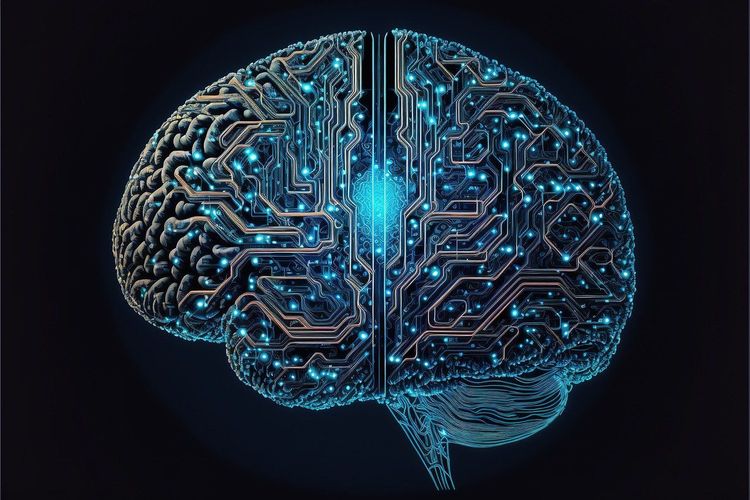Sora has transformed "one-sentence video generation" into a reality, raising concerns among content creators: Will AI-generated content (AIGC) supplant human creators in cultural production? As AI's role expands, will human creativity wane? Do we need to redefine what we consider "creativity" and "inspiration"? To explore these issues, we invited Professor Xuefang Xie from Tongji University's School of Humanities and Zhang Zheng, Vice Dean of the School of Journalism and Communication at Tsinghua University, to discuss the evolving landscape of AI in cultural creation.
A New Era of Creativity
Weekend Weekly: What was your initial reaction to a video generated by Sora?
Xuefang Xie: I was genuinely shocked. The speed at which AI learned to simulate real-world scenes was astounding. For example, the first video showcased a fashionable woman confidently strolling through a vibrant Tokyo, capturing a cinematic essence that highlighted Sora's remarkable real-life simulation abilities.
Zhang Zheng: After ChatGPT's launch, many companies explored AI-driven content visualization. Experts initially expected coherent generation tools to emerge within three years, but OpenAI surprised us by launching Sora in just a year and a half. Human predictions struggle to keep pace with these rapid advances in AI.
Limitations and Challenges
Weekend Weekly: Sora has made noticeable errors, such as a levitating plastic chair or characters running opposite to a treadmill.
Xuefang Xie: From a content creation standpoint, both ChatGPT and Sora exhibit a "patchwork" quality, reflecting the mechanical aspects of AI production that blur the line between human creativity and machine-generated outputs. While AI emphasizes "accuracy," it often misses the authentic imperfections inherent in true creativity. The emotional depth in AI-generated work can feel lacking, as characters may lack nuanced expressions that convey richer meaning.
Zhang Zheng: It's important to differentiate these concerns. While Sora's current limitations are notable, they do not define the future of AIGC. Human cognition evolves alongside technological advancements. Just as we recognize the limitations of the heliocentric model as reflective of that historical period's knowledge, we should not let AI's current shortcomings overshadow the potential for meaningful progress.
Future Developments in AIGC
Weekend Weekly: What are the anticipated advancements in AIGC?
Xuefang Xie: AIGC is poised to permeate various applications. Its most significant impact is likely to be within news media, graphic design, literary content, and even video creation in films and gaming.
Zhang Zheng: I’m particularly optimistic about AI's creative generation capabilities. Since the emergence of generative algorithms in 2014, we’ve witnessed AI enter an independent creative phase, and future algorithms could drastically improve cultural production. The synergy between large and smaller models may lead to personalized AI solutions.
Industry Transformation and Job Dynamics
Weekend Weekly: With AIGC increasingly influencing our daily lives, what impacts can we anticipate?
Xuefang Xie: AIGC will fundamentally redefine content production. Sora's ability to generate intricate 60-second videos represents a revolutionary shift in content creation, integrating deep understanding and simulation capabilities that could transform industries from short videos to films and games.
Human roles will evolve from creators to "meta-editors," responsible for overseeing and refining AI-generated content. For instance, Jason Allen's acclaimed project “Space Opera” utilized AI to develop over 900 artworks, which were further sorted and polished through algorithms.
However, this evolution poses job stability challenges in the creative industry. As AI takes over simpler tasks, the demand for specific creative roles may diminish, leading to potential short-term employment disruptions, yet also offering long-term efficiency.
Zhang Zheng: The rise of AIGC necessitates new criteria for valuing cultural products. Fewer individuals involved in creation can lower costs and timelines, but it prompts us to reconsider the significance of human contributions. Can traditional measures like "big-budget blockbusters" still be relevant in this new realm? This transition is critical for understanding contemporary cultural production processes.
Ethical Considerations in AIGC
Weekend Weekly: What potential copyright issues are emerging as AIGC expands?
Xuefang Xie: AIGC heavily depends on vast amounts of internet data, yet only a small fraction of published works are digitized. This limited dataset compromises diversity and quality, exposing AIGC to significant ethical challenges.
Most AIGC models employ "black box" learning, lacking transparency and risking the creation of "deep fakes" and a loss of control in digital culture production.
Zhang Zheng: I view it differently. I support a "development-first, governance-later" mindset. Many concerns surrounding AI are primarily hypothetical. Historically, humanity has thrived by learning from mistakes. Can AI, modeled on human learning, not learn through its own trials? Viewing these risks as opportunities for technological refinement could alleviate some anxieties.
Embracing New Cultural Landscapes
Weekend Weekly: How might AIGC technology reshape the creative landscape?
Xuefang Xie: AIGC signals a shift from professional-generated content (PGC) and user-generated content (UGC) to an era where AI takes primary creative roles. This transition could yield a richer cultural landscape, filled with diverse content and enhanced experiences.
Emerging platforms like Roblox are exploring AIGC interfaces that substitute traditional input methods with voice and gesture controls, making content creation more intuitive.
Zhang Zheng: The digital transformation strengthens links between physical and virtual realms. Apple's Vision Pro VR headset allows users to scan real-world objects into virtual environments, blurring the lines further and enriching cultural experiences with immersive, multi-sensory engagement.
Challenges of Accessibility
Weekend Weekly: Does easing the creative process create its own challenges?
Zhang Zheng: The most significant change may be the imbalance between supply and demand in cultural products. While creative production capabilities surge, consumer expectations rise too, becoming more discerning and difficult to satisfy.
We appear to be shifting from a creator economy to an advocate economy, where consumer feedback becomes indispensable for cultural production viability.
Xuefang Xie: As AIGC becomes more prevalent, we risk increasing dependence on machines, which could hinder human creativity. Erich Fromm suggested that society once feared enslavement; now, we risk becoming robot-like. Relentlessly relying on AI for creativity could stifle our innate abilities and diminish individuality in cultural production.
The Role of Education
Weekend Weekly: How should education respond to generative AI's emergence?
Xuefang Xie: While AI can democratize access to creative production, it might deepen societal inequalities, creating a digital divide. Mastering AIGC tools offers transformative potential to some, while others may be left behind.
The emotional resonance found in human creativity could be diminished as AIGC leads to repetitive content, stifling genuine innovation. This underscores the need for educational curricula that intertwines data, technology, ethics, and creative thinking.
Moving Forward: Addressing New Demands
Weekend Weekly: How can humanities education in China adapt to these emerging challenges?
Zhang Zheng: At Tsinghua University, we are actively exploring human-AI collaboration across disciplines. We’ve developed AI teaching assistant systems and encourage students to utilize AI in creative projects, exemplified by a co-written science fiction novel that won provincial recognition.
Starting next year, we aim to introduce 100 AI-enhanced courses and provide freshmen with "AI growth assistants" to facilitate AI interaction in their academic pursuits.
Xuefang Xie: As we integrate AI innovations, nurturing humanistic talent should emphasize data literacy, technology, creative, and cultural thinking. Educators must prioritize creativity and ethical frameworks for navigating AIGC.
To address emerging challenges, all stakeholders—developers, operators, and users—must collaboratively establish a technological ethic that fosters sustainable and healthy digital growth. Merging data literacy with humanistic inquiry is essential for preparing students for an AI-dominated future.
In summary, AIGC marks a profound shift from "digital immigrants" to "AI immigrants," necessitating a reevaluation of our cognitive and value structures in this rapidly changing environment. Emphasizing interdisciplinary knowledge and skill development will be crucial for cultivating talent that thrives in the AI era.







